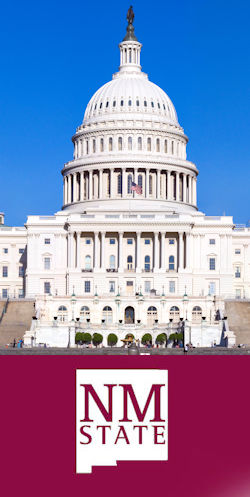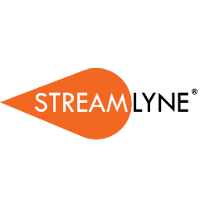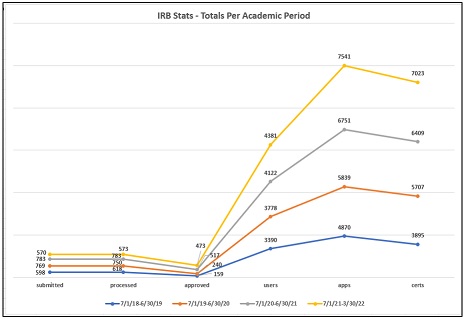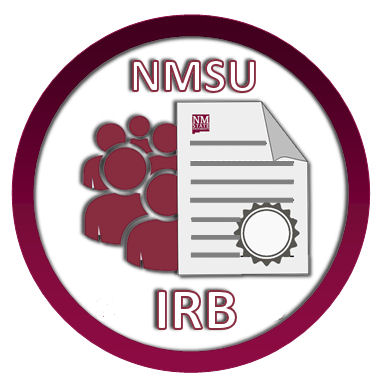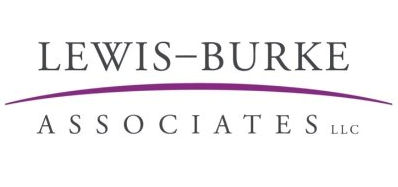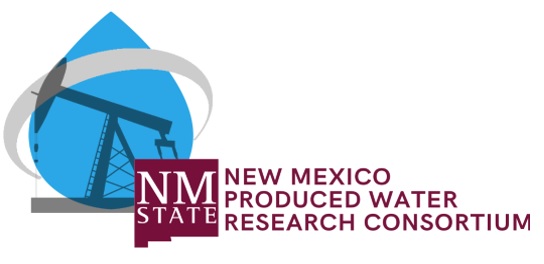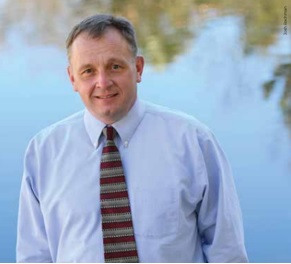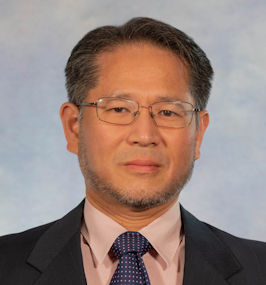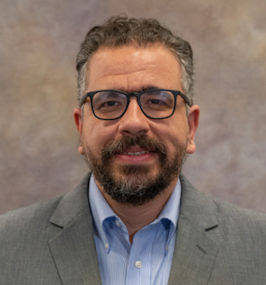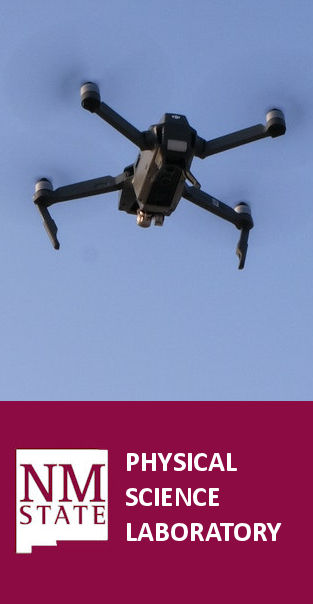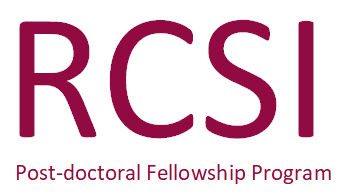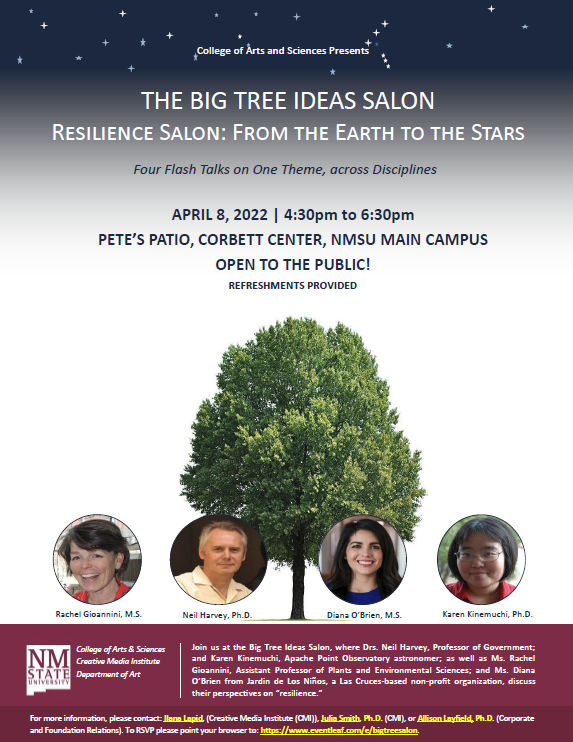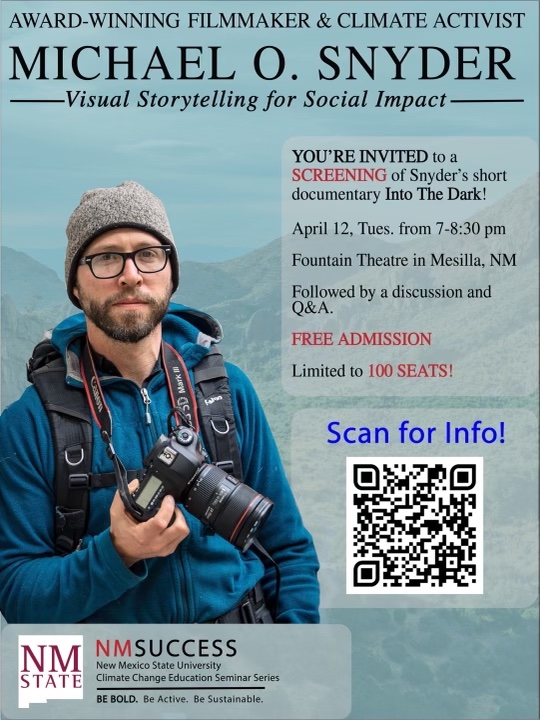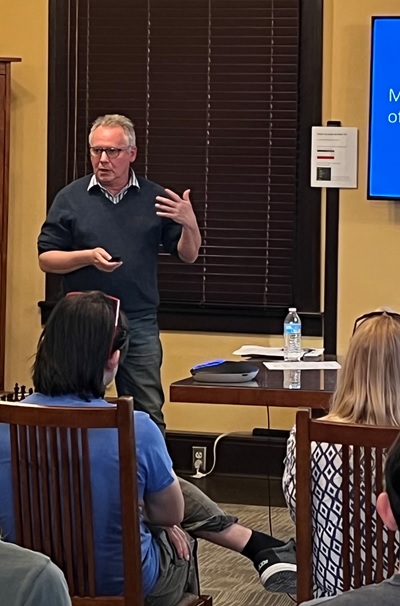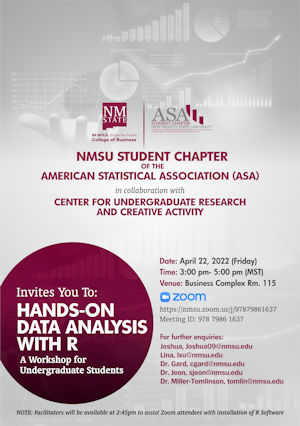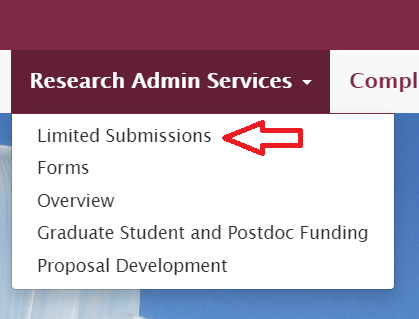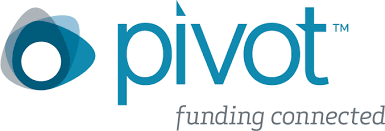 |
|
NMSU Federal Initiatives
By Dr. Luis Cifuentes, Vice President for Research, Creativity and Strategic Initiatives, and Dr. Hamid Mansouri Rad, Senior Proposal Development Specialist, Research Administration Services
Each year, the Office of the Vice President for Research, Creativity, and Strategic Initiatives (RCSI) releases a request for information (RFI) to solicit federal initiatives, which become NMSU priorities and projects designed to respond to or drive the U.S. government’s development and implementation of specific programs and investments. NMSU tailors its initiatives to align with congressional and federal agency goals and missions to address nation-wide concerns, while simultaneously delivering services or conducting research at the state or local level. In November 2021, RCSI’s call for RFIs from faculty across NMSU system also required alignment with NMSU research strengths or strategic emerging areas. We received fourteen responses from faculty in the colleges of Arts & Sciences (A&S), Engineering (ENGR), Agricultural Consumer and Environmental Sciences (ACES), and Health Education and Social Transformation (HEST). It is with great pleasure to recognize the groups that collaborated to provide RFI responses, spearheaded by the following faculty and staff:
The initiatives received were examined and, in most cases, combined into major themes such as Food, Agriculture, and Sustainability; STEM Education; Climate Change; Water; Cybersecurity; Additive Manufacturing; Health and Bioinformatics; and Quantum Information Science. RCSI, working with our government relations staff, have been devising strategies to secure funding for these efforts from various federal sources. The majority of these will be merit-based or competitively allocated agency funding. After a long hiatus, congressionally directed spending, or earmarks are back and can used to distribute federal funds to a specific public or nonprofit organization for a single project. Earmarks are another potential source of funding for NMSU federal initiatives, but are funded for only one year. NMSU federal initiatives can also be directed as a programmatic appropriations request. Programmatic appropriations are typically requests to fund a general federal agency or program at a specific level; for example, overall funding for the National Science Foundation or the Department of Agriculture’s formula funds for land-grant institutions. In select cases, an NMSU federal initiative can become part of an agency request resulting in potential long-term funding. Programmatic requests may also include language to encourage, urge, or direct agencies’ actions. Finally, the opportunity for submitting federal FY23 congressional directed spending (earmarks) came upon us quickly due to the delay in completing FY22 funding and the release of the President’s budget request. Senators Heinrich and Luján will again be accepting proposals for congressional directed spending but have a short deadline of April 11. RCSI solicited non-Science, Technology, Engineering, or Math (STEM)-related initiatives due today, Thursday April 7. |
|
Streamlyne Implementation Updates
Dr. Phillip DeLeon, Associate Vice President for Research
Proposal Module Stabilization: Research Administration Services (RAS) staff have been successfully using the Streamlyne proposal module since the Go Live on January 25. Since then this module has been in a "stabilization phase" which is scheduled to end on April 20. The routing and approval process has worked well and continued feedback from faculty and unit heads is appreciated. On February 25, NMSU submitted its first System-to-System (S2S) proposal to the Grants.gov portal. Streamlyne's S2S capability takes data collected in the Proposal Development module and forwards directly (via API) to Grants.gov. This S2S capability is analogous to tax software such as TurboTax which pushes user's tax information to the IRS systems . This functionality eliminates duplication of effort, i.e. develop and build proposal components in the system and then manually populate sponsor online proposal forms. By eliminating the extra effort, we reduce the time spent on data entry in multiple systems and/or forms and potentially reduce errors. Research Compliance Modules: Currently the award, conflict of interest (COI), institutional animal care and use committee (IACUC), and institutional review board (IRB) modules are being configured. The COI, IACUC, and IRB modules are on track this month with user testing for the proposals and routing processes. The Streamlyne COI research module is independent of the NMSU COI certification, and is specific to financial disclosures for sponsored awards. The Streamlyne IRB module will replace the Maestro system which is being phased out. The IRB has developed a management plan for existing applications in Maestro to be stored through their expiration and archived as per NMSU retention policy. The Research Integrity and Compliance staff will continue to have access to the Maestro system, and will guide researchers through the transition from Maestro to Streamlyne. Beginning April 11, 2022, anyone interested in helping with the user testing phase for the IACUC module, please contact JoAnne Dupre for targeted training by sending an email to us via ovpr@nmsu.edu. The Streamlyne support page can be found at: https://research.nmsu.edu/Streamlyne.html |
|
NMSU Institutional Review Board Applications Update
By Ms. Michelle Gavin, Research Integrity Coordinator, Office of Research Integrity and Compliance
As the Spring 2022 semester is winding down, the Institutional Review Board (IRB) at NMSU would like to share with you a summary of the IRB applications that have been processed for research activities involving human subjects. Since implementation on February 27, 2013, the Office of Research Integrity and Compliance (RIC) along with the Institutional Review Board (IRB) have continued to see a substantial increase in research involving human subjects which requires review and oversight by RIC and the IRB. Currently Maestro has been used by 4,318 users with a total of 7,541 IRB protocol applications and its users uploading 7,023 human subjects related certificates. In fact from July 1, 2018 through June 30, 2019 there were a total of 618 applications that were processed; from July 1, 2019 through June 30, 2020 there were a total of 750 applications processed; from July 1, 2020 through June 30, 2021 the number jumped again to 783 applications that were processed. As of July 1, 2021 to present the IRB has process 573 applications and there is still 3 months still to go which RIC and the IRB foresee will continue to be an increase from the previous year as well. Please contact the Office of Research Integrity and Compliance at (575)646-7177 or email ovpr@nmsu.edu. |
|
NMSU Institutional Review Board Process: Streamlyne
By Ms. Michelle Gavin, Research Integrity Coordinator, Office of Research Integrity and Compliance
The Institutional Review Board (IRB) at NMSU would like to share with you some upcoming changes to the process of submitting IRB applications. As you are aware, NMSU has moved to a system entitled Streamlyne (https://research.nmsu.edu/NewsAndBlogs/Streamlyne.html) for grants/contracts as well as IRB submissions. |
|
Engaging with Federal Agencies and Congress: NMSU Collaboration with Lewis-Burke Associates LLC
By Ms. Laura Uttley, Principal Analyst, Lewis-Burke Associates and Dr. Hamid Mansouri Rad, Senior Proposal Development Specialist, RAS
The Office of the Vice President for Research, Creativity, and Strategic Initiatives (RCSI) coordinates with the Office of Government Relations (OGR) to identify, invest in, and disseminate resources and opportunities to enhance NMSU’s federal impact, including positioning for federal funding, advocating for federal research programs and infrastructure, and increasing faculty engagement with federal agencies through activities like the PI Academy. Together with Lewis-Burke Associates LLC (Lewis-Burke), NMSU’s Washington, D.C.-based federal government relations firm, RCSI seeks opportunities to advance the University’s strategic research and federal policy goals by providing resources to individual faculty, centers and colleges, and leadership to bolster support for campus-wide priorities. Lewis-Burke provides federal funding trends and intelligence, including analyses on federal budget and appropriations that impact our researchers and inform best practices for engaging federal program officers. Most recently, Lewis-Burke analyzed the fiscal year (FY) 2022 omnibus appropriations bill as well as the FY 2023 President’s budget request. In the omnibus appropriations bill, NMSU was successful in advocating for STEM education programs, the Classified Ready Employee Workforce (CREW) program, carbon management, and Arrowhead Center programs, totaling over $5 million in direct support for NMSU. Through its analysis of the President’s budget request, Lewis-Burke provides NMSU with key insight into the Administration’s priorities for FY 2023, which play a large role in influencing the shape and scope of future federal programs. Lewis-Burke also regularly provides NMSU with advanced intelligence on anticipated research solicitations. Further, RCSI and Lewis-Burke foster faculty engagement with federal agencies through PI Academy meetings for early career researchers, which to build relationships with program directors and better understand the agencies’ foci. For over fifteen years, NMSU has retained Lewis-Burke) to represent the University at the federal level, including Congress and the Administration. The firm’s approach couples government relations strategies with research development, supporting both the NMSU Offices of Government Relations and the RCSI. With nearly 40 policy professionals, Lewis-Burke’s expertise covers the breadth of federal funding agencies. |
|
Proposal Resources for Investigators: Facilities and Equipment
By Dr. Tanner Schaub, Director, Research Cores Program
Our office is suppling semi-modular and boilerplate proposal content that NMSU researchers can utilize when developing their proposals. Often, gathering and executing a laundry list of smaller documents (e.g. facilities and equipment sections, data management plans, mentoring plans, letters of support, institutional letters etc.) can be as much of a task as developing and writing technical content. This week, we have added an internal SharePoint site that contains Facilities and Equipment documents from many departments and other principal units across several colleges. While we are still receiving input/updates, PIs will already find this to be an excellent repository for infrastructure descriptions that can be accessed and modified for use in fit-for-purpose proposal sections. The institutional facilities and equipment SharePoint can be found in the “Proposal Preparation” section at our Resources for Investigators webpage. Unit leaders and laboratory directors – please review the content listed for your groups and send any additions to me at tschaub@nmsu.edu.
|
|
LEADS 2025 Goal 2: Tactic 2.1.5 Update: Build Strategic Public-Private Partnerships that Provide Opportunities for Research, Entrepreneurship and Regional Economic Impact
By Dr. Patricial Knighten, Director, Innovation Commercialization
Public-private partnerships can be a story of relationships and relationship building, and we emphasize exposure of NMSU researchers and broad collaborations to identify and build new relationships. Three NMSU inventor teams presented their technologies at the Innovate NM Showcase. Arrowhead Center and NMSU joined the New Mexico Space Valley Coalition in proposing a statewide collaboration for the development of industry and workforce for the commercial space sector. A safer public health environment enabled in person visits from prospective collaborators in the Space, Agriculture and Artificial Intelligence sectors. Visitors have included a Space Fund portfolio company, https://spacefund.com Eden Grow Systems, and a New Mexico Space Valley Coalition partner, the Q Station https://www.qstation.tech, with four emerging space startup companies seeking partnerships and possibly a new home base. |
Dr. Patricia Knighten, Director, Innovation Commercialization |
New Mexico Produced Water Research Consortium
Drs. Patricia Sullivan, Director, Strategic Initiatives and Mike Hightower, Consortium Director
In passing the 2019 Produced Water Act, the New Mexico legislature encouraged the fit-for-purpose treatment and reuse of oil and gas produced water reuse to encourage reductions in fresh water use by the oil and gas sector and increase water availability to support economic development opportunities, while protecting public and environment health and safety. To facilitate this effort, the New Mexico Environment Department entered into a Memorandum of Understanding with New Mexico State University in September 2019 to create the New Mexico Produced Water Research Consortium (Consortium). The Consortium is operated and managed through the Colleges of Engineering, Agriculture, Arts and Sciences, the Water Resources Research Institute, and the Office of Strategic Initiatives. In 2020, the Consortium was selected by the US Environmental Protection Agency to coordinate research and development on produced water fit-for-purpose treatment and reuse for the nation in support of their new National Water Reuse Action Plan (WRAP). The role of the Consortium is to conduct collaborative research and development program with state and federal environmental and natural resource agencies, academia, industry, and non-governmental organizations (NGOs) to fill science and technology gaps necessary to establish regulations and policies for the fit-for-purpose treatment and reuse of produced water for a wide range of applications including industrial, agricultural, energy, and water supply augmentation uses. The Consortium is currently working with eight states on technology and science-based research projects to improve produced water characterization, risk and toxicology assessment, innovative pre-treatment and treatment technology assessment, and enhance socio-economic, environmental and social justice issues of produced water treatment and reuse. Information, analytical data, and treatment data collected in 2021 and so far in 2022 indicate that produced water can be cost-effectively treated for a range of potential applications. Current efforts continue to expand analysis of the cost and performance of innovative treatment approaches, associated health and safety challenges, and the long term socio-economic and fresh water sustainability benefits of fit-for-purpose treatment and reuse of produced water. |
|
Center of Excellence in Sustainable Food and Agricultural Systems (CESFAS)By Drs. Efren Delgado and Jay Lillywhite, Co-Directors (CESFAS)
The Center of Excellence in Sustainable Food and Agricultural Systems (CESFAS) is helping to solve agricultural challenges in New Mexico and the region, such as reducing food insecurity. CESFAS promotes collaborative and integrated networks throughout the agriculture and food supply chain, improving collaboration between Universities, USDA research laboratories and agencies, non-profit organizations and private industry. Center faculty and affiliated faculty provide technical assistance to the agriculture and food industry. In addition, CESFAS supports activities leading to workforce development for stakeholders in the food and fiber supply chain.
|
|
Long-term Collaboration between USDA and NMSU at the Jornada Experimental RangeBy Dr. Brandon Bestelmeyer, Research Leader, USDA-ARS Jornada Experimental Range
The USDA Agricultural Research Service (ARS), Jornada Experimental Range collaborates with NMSU faculty and programs in several research areas, including the Long-Term Ecological Research (LTER) program that has been continuously funded by the National Science Foundation since 1982 (to NMSU since 2000), the USDA Southwest Climate Hub, the USDA Long-Term Agroecosystem Research (LTAR) Network, the Southwest Beef Coordinated Agricultural Project, and agency-funded research on land/soil health monitoring and wind erosion research. For those of you not familiar with our program, we are a group of USDA and NMSU ecologists, range, soil, physical, and data scientists and technical staff based at Wooton Hall. USDA has had formal cooperative agreements with NMSU since the ARS was established in the 1950s, linked to NMSU under the Agricultural Experiment Station. We are funded primarily by discretionary Agriculture appropriations, supplemented by cooperative agreements from partner agencies and grants with university partners. The USDA managed Jornada Experimental Range (JER), founded in 1912 along with our research program, is a 300 square mile fenced large landscape research area adjacent to NMSU’s Chihuahuan Desert Rangeland Research Center. The property is the largest contiguous land holding of the ARS. In addition to the LTER, the USDA supports use of JER by a wide range of researchers from NMSU and universities across the U.S. JER is used to represent arid drylands in numerous national and global networked studies and is among the most densely instrumented environmental research areas in the world. The density and diversity of open data from Jornada, alongside our support of researcher access, accelerates research innovations and continually attracts new studies and funding. Looking ahead to FY23, the President’s USDA ARS budget emphasizes the linkage of agroecosystem research to climate mitigation and climate change adaptation, with substantial funding increases proposed for Climate Hub and LTAR programs. For more information please send email to brandon.bestelmeyer@usda.gov. |
|
Recognizing NMSU's Large Proposal Submitters (March 2022)
By Dr. Hamid Mansouri Rad, Senior Proposal Development Specialist, RAS
Congratulations to Drs. Hansuk Sohn and Mahdi Haghshenas-Jaryani for each submitting a proposal exceeding one million dollars in March 2022. Dr. Hansuk Sohn, Associate Professor and Interim Head of the Department of Industrial Engineering submitted a $1.2 million proposal to the Department of Energy. This proposal is a collaborative effort involving NMSU, the University of Texas – El Paso and Arizona State University to establish an education and state-of-the-art research consortium that will provide a platform to educate underrepresented minority students in pursuing careers in STEM, especially in the field of Artificial Intelligence-based Cyber Security and Threat Mitigation. The project objectives are: 1) Developing next-generation student education with artificial intelligence and cybersecurity for nuclear security enterprise, 2)Establishing collaborative research groups for knowledge innovation and excellence within DOE NNSA interests, 3) Broadening and attracting the participation of minority groups and developing a student pipeline, and 4) Enabling sustainability of the research, education and student pipeline beyond the project period. This collaborative effort will also provide opportunities for faculty and students to engage with DOE national laboratories, such as Sandia National Lab, Los Alamos National Lab, and others for science and education in conducting research projects and increasing student presence in bringing awareness to the developing trends in Cyber Security and Threat Mitigation. For more information please contact Dr. Sohn at hsohn@nmsu.edu. Dr. Mahdi Haghshenas-Jaryani, Assistant Professor of Mechanical and Aerospace Engineering submitted a $1.2 million proposal to NSF to address issues that have negatively impacted chile pepper productions in New Mexico. As Dr. Haghshenas explains, climatic changes, long-term drought, labor shortage, and the international competitive market have led to a huge reduction in production and negative economic impact on the local farmers. AI-enabled precision farming can offer important tools and approaches for addressing these issues by managing irrigation and soil quality to enhance the agricultural productivity sustainably. However, these data-driven approaches require continuous and significantly large amount of data to be effective. These requirements create challenges for carrying out data collection manually due to its labor-intensive, error-prone, and costly nature. This proposal explores an innovative integration of robotics technologies to establish a distributed co-robot team of mobile manipulators for monitoring and data-collection of chile pepper crops and farm environments in New Mexico. For more information please send email to mahdihj@nmsu.edu. |
Dr. Hansuk Sohn, Industrial
|
Drone Flight Workshop at NMSU on Monday April 18, 2022By Dr. Hamid Mansouri Rad, Senior Proposal Development Specialist, RAS
Performing research, teaching a class, collecting video and photos of campus, and performing inspections of infrastructure using drones on campus require safe operations and following NMSU rules. Everyone who performs sUAS flight operations of NMSU-owned assets, hires an outside sUAS vendor, and or performs sUAS flights from NMSU property is required to comply with NMSU rules and policies. To ensure proper adherence, all UAS operators are required to attend a UAS workshop. The workshop will cover current FAA regulations, NMSU policies and procedures, and good safety practices. After the classroom workshop, each pilot will be required to perform a one-on-one flight demonstration. The workshop will take place from 8 a.m. to 4 p.m. Monday, April 18 at NMSU Anderson Hall (classroom portion) and the Las Cruces Model Airplane Park (flight portion). This is not flight training nor is it a prep class to gain your FAA Part 107 Certificate. For more information contact Joseph Millette at 575-646-9585 or via email at jmillette@psl.nmsu.edu. |
|
RCSI Postdoctoral Fellowship Program: Professional Development Activity for Postdocs, Input Sought!
By Dr. Tanner Schaub, Director, Research Cores Program
We seek partners and input to establish a cohesive professional development component for NMSU postdocs. Professional development guidance will make NMSU more competitive in attracting qualified postdocs, will provide direct input to postdoctoral mentoring plans that strengthen PI proposals, and will give us a basis to track career success from former postdocs to justify training. |
|
Big Tree Ideas Salon Presents: Resilience Salon, from the Earth to the Stars
By Dr. Hamid Mansouri Rad, Senior Proposal Development Specialist, RASNMSU faculty and staff are invited to join us at the Big Tree Ideas Salon on Friday April 8, from 4:30pm to 6:30pm at Pete's Patio where Drs. Neil Harvey, Professor of Government, and Karen Kinemuchi, Apache Point Observatory astronomer, as well as Ms. Rachel Gioannini, Assistant Professor of Plants and Environmental Sciences, and Ms. Diana O’Brien from Jardin de Los Niños, a Las Cruces-based non-profit organization, discuss their perspectives on “resilience.” For more questions, please send email to Dr. Julia Smith Visiting Assistant Professor at julias@nmsu.edu. |
|
Screening of Into the Dark and QA Session with Filmmaker Michael O. Snyder
By Dr. Hamid Mansouri Rad, Senior Proposal Development Specialist, RASThis is a reminder that on Tuesday, April 12, organizers of the NMSU Climate Change Education Seminar Series are holding a Q&A with award-winning photographer and filmmaker Michael O. Snyder after a screening of his documentary film, “Into The Dark”. The free screening will start at 7 p.m. in The Fountain Theatre at 2469 Calle De Guadalupe, Mesilla, NM. We hope NMSU community can take advantage of this opportunity. Those interested in attending, should register at https://www.eventleaf.com/e/nmsuccessapril12. There is a limited seating of 100 attendants. For more information please contact Creative Media Institute Associate Professor Ilana Lapid at ilapid@nmsu.edu.
|
|
Research Programs and Fellowships Night in Conroy Honors Center
By Dr. Hamid Mansouri Rad, Senior Proposal Development Specialist, RAS
On March 17, the Center for Undergraduate Research and Creative Activity hosted the first-ever Research Programs and Fellowships Night in Conroy Honors Center. Directors from research programs across NMSU talked about how undergraduates can get involved in research and creative activity, and about the mentorship, networking, professional development, and financial support available through their programs. Speakers introduced the Honors Capstone for students in all fields, Alliance for Minority Participation (AMP), Maximizing Access to Research Careers (MARC), Partnership for the Advancement of Cancer Research (PACR), Discovery Scholars for all students in Arts & Sciences, NMSU NSF-REU on Immigration Policy and U.S.-Mexico Border Communities, the Biology course-based undergraduate research course (CURE), NSF Graduate Research Fellowship, and more. Dr. Andrea Orzoff of the Office of National Scholarships and International Education introduced fellowships that support undergraduate research, including the Honors College Scholarship for International Research. An event recording is available at https://tinyurl.com/y2nu5ys8 . For more information about this and future events at the Center for Undergraduate Research and Creative Activity, please contact Dr. Tracey Miller-Tomlinson, the Honors Faculty Fellow for the Center for Undergraduate Research and Creative Activity, at tomlin@nmsu.edu. |
Dr. Neil Harvey presenting the NSF-REU on Immigration Policy & U.S.-Mexico Border Communities. |
Workshop: Hands-On Data Analysis with "R"
By Dr. Hamid Mansouri Rad, Senior Proposal Development Specialist, RAS
NMSU Student Chapter of the American Statistical Association (ASA) and the Center for Undergraduate Research & Creative Activity (CURCA) are co-hosting a workshop, Hands-On Data Analysis with R, on Friday, April 22 from 3-5 pm! During the workshop, we will explore and analyze 'real data' using R software. Please join us at BC 115 or on Zoom (https://nmsu.zoom.us/j/97879861637). It is open to all undergraduate students! Those interested should register using the link provided here. |
|
Limited Submission Funding OpportunitiesBy Dr. Hamid Mansouri Rad, Senior Proposal Development Specialist, RAS
Research Administration Services maintains a list of limited submission funding opportunities for NMSU research community. The list is accessible through a link on the Research website, through the Research Administration tab. NMSU users can also access the list directly on SharePoint. We encourage NMSU researchers to periodically visit the site and if they are interested in any of the opportunities to please inform us by sending email to ras@nmsu.edu. |
|
Pivot Funding Opportunity Database
By Dr. Hamid Mansouri Rad, Senior Proposal Development Specialist, RAS
This is a reminder that in order to assist NMSU faculty and staff in locating external funding opportunities, the RCSI has purchased a subscription to ProQuest’s Pivot available at https://pivot.proquest.com/session/login.
To request a one-on-one or group Pivot training, send email to hamid@nmsu.edu. |
|
Graduate School |
|
Three-Minute Thesis is Back for Graduate Students in All Academic Colleges
By Dr. Carol Flinchbaugh, Associate Professor of Management and Interim Associate Dean, Graduate School
The College of Arts & Sciences in collaboration with the other academic colleges and the Graduate School are pleased to offer the Three-Minute Thesis event (https://threeminutethesis.uq.edu.au) on Saturday April 23, 2022. This event will be held starting at 9:00am in NMSU’s Domenici Hall Room 106. The competition is open to 25 students. Scholarships for the top three winners will be awarded! The Three-Minute Thesis is an international competition is open to students who are close to finishing their master's thesis or doctoral dissertation (see eligibility below). The purpose of the competition is to enhance your presentation and communication skills about your research. Often researchers call this our “elevator pitch” where we hone our communication skills to showcase our research concisely to a non-academic audience. Participating in this event will help you develop skills to advance your future career. Don’t delay! Deadline for registration is April 8th. For more information on how to participate, please fill out NMSU’s 3MT Registration Form. For any questions, contact the College of Arts and Sciences at arts_sci@nmsu.edu or 575-646-2001. The following event rules and restrictions apply:
OR
|
|
Questions and comments regarding NMSU’s Research Digest should be directed to Hamid Mansouri Rad, Ph.D. at hamid@nmsu.edu, (575) 646-6429. |
|
